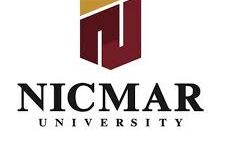Cancer is a major global health concern, with experts always looking for more effective and less toxic treatment alternatives.
In recent years, targeted therapy and immunotherapy have emerged as viable alternatives to chemotherapy and radiation.
These treatments have shown significant improvements in patient outcomes, while their efficacy varies depending on the cancer type and specific patient characteristics.
As the name suggests, targeted therapy is the use of medications or other substances that specifically target cancer cells while causing minimal damage to healthy cells. Immunotherapy, on the other hand, works by activating the immune system to recognize and target cancer cells.
Sharing his views on the evolving landscape of cancer care, Dr. Parveen Jain, Senior Consultant & HOD- Oncology at Aakash Healthcare, said, “Targeted therapy and immunotherapy are transforming the cancer care landscape. We are now able to tailor treatments based on genetic mutations and immune response offering patients not just better survival but also improved quality of life. We’re committed to bringing these innovations into clinical practice where they matter most, at the patient’s bedside.”
Breakthroughs in Targeted Therapy and Immunotherapy
Targeted therapy has shown significant response rates in tumors with specific genetic alterations, such as EGFR-mutated non-small cell lung cancer and HER2-positive breast cancer. Recent research has centered on creating more precise targeted medicines based on specific genetic abnormalities or biomarkers. For example, a 2023 study found that a new targeted medication for non-small cell lung cancer enhanced progression-free survival when compared to traditional chemotherapy.
Combining targeted medicines with various treatment techniques has shown potential for increasing effectiveness. Advances in nanotechnology have resulted in the creation of novel drug delivery methods, which have increased the efficacy of targeted medicines.
Similarly, substantial advances in immunotherapy have transformed cancer treatment by allowing the body’s own immune system to target and eliminate cancer cells more efficiently. It is working well even against tumors that have progressed to several organs, increasing survival rates and quality of life. Better outcomes are been found in malignancies of the lungs, kidneys, skin, and other organs.
Chimeric Antigen Receptor (CAR) T-cell therapy is a significant step in immunotherapy, having demonstrated promising outcomes in the treatment of blood malignancies. A study found that a new CAR T-cell therapy for multiple myeloma had higher response rates and longer durability than earlier treatments.
Researchers are still investigating ways to improve the efficacy of immunotherapy, notably by combining different checkpoint inhibitors. Researchers discovered that utilizing PD-1 and CTLA-4 inhibitors combined resulted in higher overall survival in patients with advanced melanoma than using a single drug alone. This strategy seeks to improve the immune system’s ability to recognize and fight cancer cells more effectively.
Emphasizing the role of innovation in cancer therapies, Dr. Puneet Gupta, Chairman- Oncology at Asian Hospital, stated, “With breakthroughs like CAR T-cell therapy and personalized mRNA cancer vaccines, we’re entering an era where cancer may be managed as a chronic disease or even cured. Our focus is to integrate these emerging therapies responsibly, combining precision and compassion in every treatment we offer.”
Personalized Vaccines and Long-Term Benefits
Advances in genome sequencing and bioinformatics have enabled the production of tailored cancer vaccines. Recent studies have highlighted the potential of mRNA-based personalized cancer vaccines, especially when used in combination with checkpoint inhibitors, in treating advanced melanoma.
While targeted medicines enhanced progression-free survival by an average of 6-8 months over standard chemotherapy across diverse cancer types, immunotherapy, particularly checkpoint inhibitors, has produced long-term responses in a subset of patients across multiple cancer types in a study. Some patients with advanced melanoma or non-small cell lung cancer who were treated with immunotherapy saw long-term survival advantages that lasted more than five years.
The combination of immunotherapy and targeted therapy is considered a promising direction for future cancer treatment strategies. Overall, immunotherapy and targeted therapy constitute a paradigm shift in cancer treatment, providing patients with new hope and paving the way for the potential cure or management of cancer as a chronic disease.
 Newspatrolling.com News cum Content Syndication Portal Online
Newspatrolling.com News cum Content Syndication Portal Online







